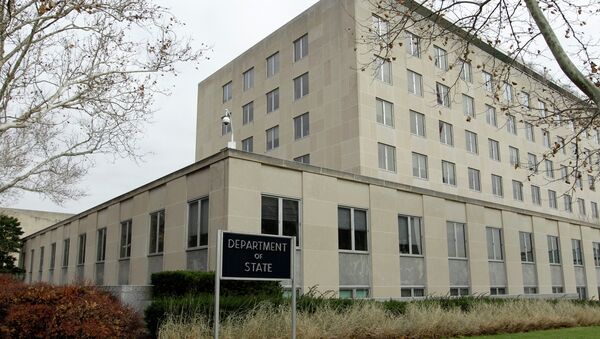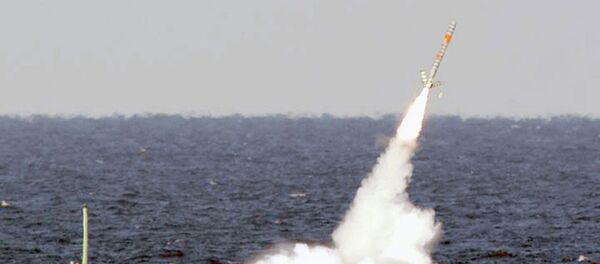WASHINGTON (Sputnik) — Russia’s advanced ground-launched cruise missile (GLCM) represents a threat to Europe and Northeast Asia, and violates the Intermediate-Range Nuclear Forces (INF) treaty, a State Department official told Sputnik on Tuesday.
“The Russian system is a state-of-the-art GLCM that Russia has tested at ranges capable of threatening the European continent and our allies in Northeast Asia,” the official stated.
The official made the comments following the statement by Russian Deputy Foreign Minister Sergei Ryabkov earlier on Tuesday that Moscow is willing to talk if Washington explains its allegations of INF treaty violations.
The State Department official noted the United States continues to insist that Russia meets its legal obligations and returns to INF treaty compliance.
“We believe that it is our interest — and that of our treaty partners, including Russia — that the INF treaty remains in force and all parties abide by their obligations,” the official said.
Washington and its allies are reviewing different options, the official said, including military options, to respond to Russia's alleged INF treaty violations.
“There have been no decisions regarding military responses to the Russian violation. The United States, as a country governed by the rule of law, has not violated the Treaty in any way, and will abide by its obligations as long as the Treaty remains in force,’ the official noted.
The INF Treaty, signed by the United States and the then Soviet Union in 1987, bans nuclear and conventional ground-based cruise and ballistic missiles with a range of 500-5,500 kilometers (300-3,400 miles).
In July 2014, the United States accused Russia of not complying with the INF treaty because it tested a ground-launched cruise missile.
According to recent media reports, US authorities are considering deploying missiles to Europe to defend against Russian advantages of an alleged treaty violation, or the possibility of a more aggressive "counterforce" of ground-based strategic weapons or cruise missiles.
The Russian Foreign Ministry dismissed the accusations, pointing to reported US violations of the INF treaty by placing missile defense launchers in Poland and Romania.




